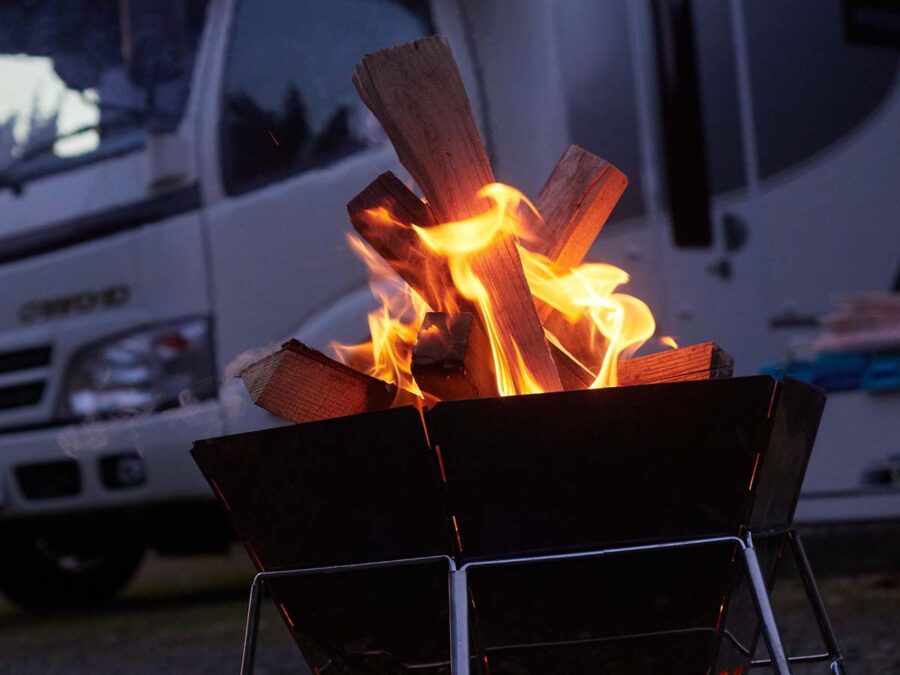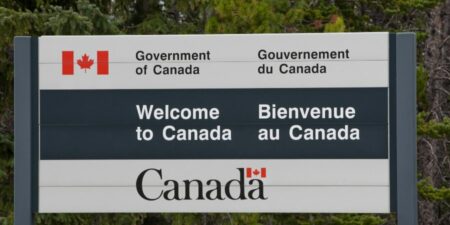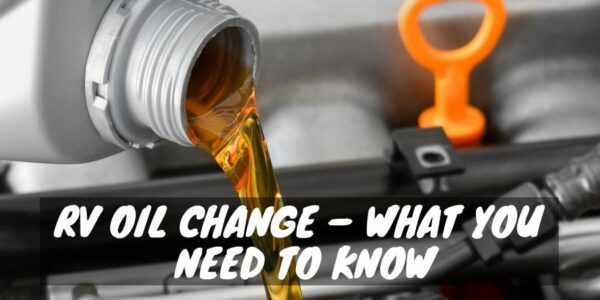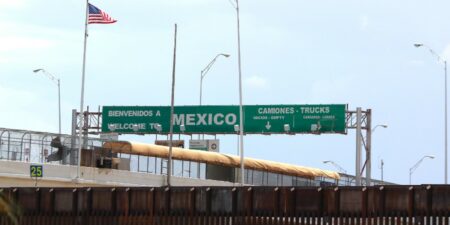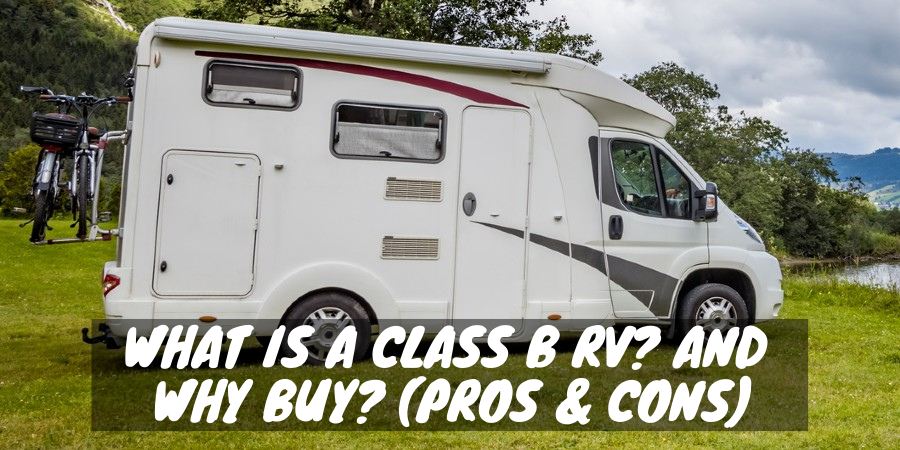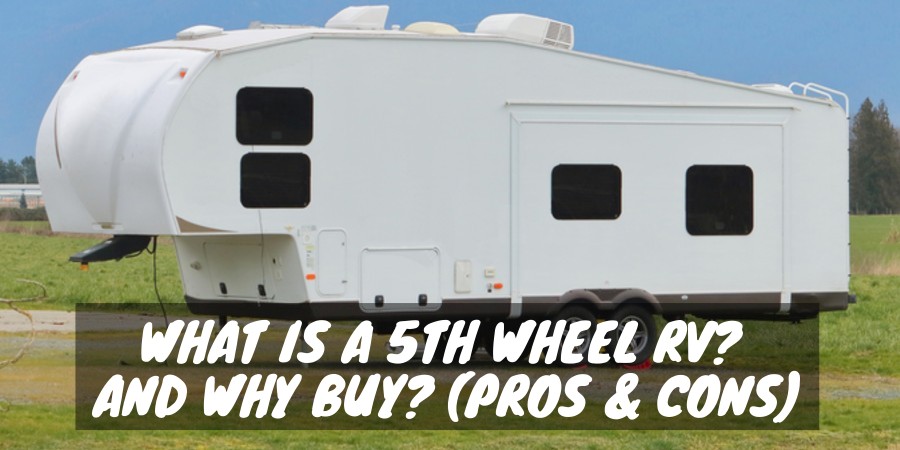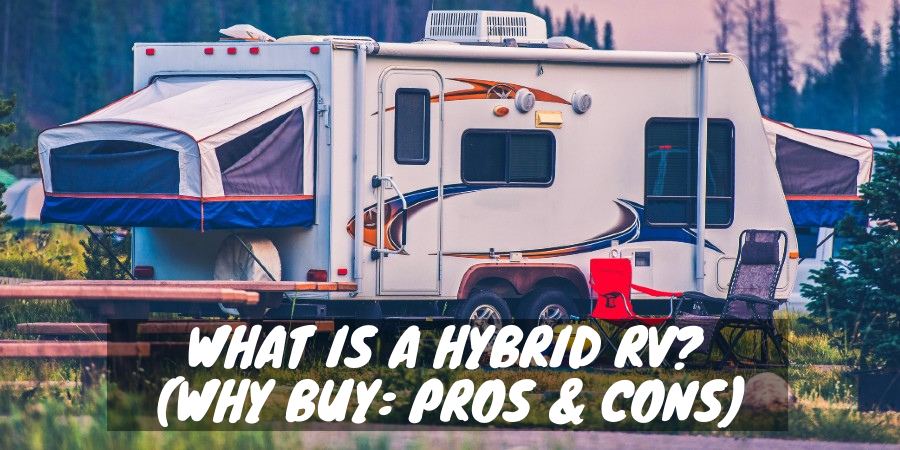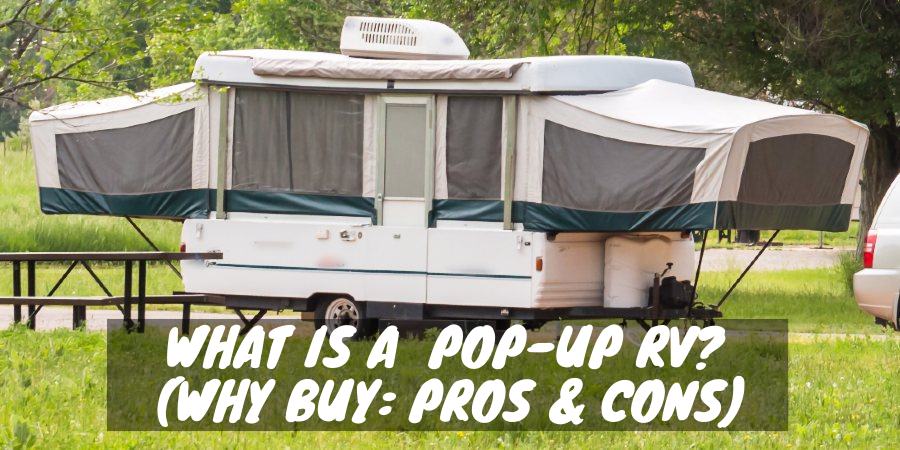RV fires are scary and can be deadly if you don’t have a fire safety plan. Data from the U.S. Fire Administration shows that over 4,200 RV fires are reported yearly, with an average of 15 deaths.
Fires can start from faulty wiring or propane appliances, wayward campfire embers, cooking accidents, or careless smoking indoors, but all will most likely destroy your RV within minutes.
If you love RV camping and want your family and guests to enjoy years of carefree fun, please take a few minutes and read all the general fire and safety rules for motorhomes and travel trailers in this easy-to-read guide.
How to Build A Comprehensive RV Fire Safety Plan
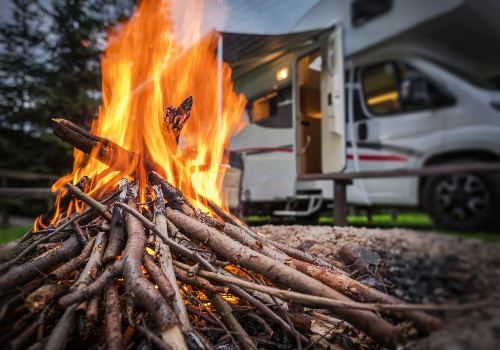
Have you ever considered how you’d act if a fire broke out inside your RV? Unfortunately, if you’re like most people, you assume it would be easy to exit a burning camper because it’s small.
In some campers, this is true, but what about large motorhomes, fifth wheels, or travel trailers with bunkhouses and bedrooms farther from the entry door? What if a fire breaks out at night and blocks the exit? What about dangerous smoke that can fill an RV almost instantly?
All these scenarios happen, so having an RV fire safety escape plan for your RV design is the first step to getting your family and pets out of the camper quickly and safely.
The next step is ensuring you have all the necessary fire safety services, such as smoke detectors and fire extinguishers, and understand the leading causes of RV fires so you can avoid them.
Lastly, you must form a routine maintenance and inspection checklist for your RV to look for potential issues that could cause a fire.
So, let’s go step-by-step through the necessary fire and safety services you’ll need while traveling and camping in your RV.
RV Fire Escape Plan
Having a fire safety plan ready for RV guests if a fire breaks out, we all know, can make the difference between life and death. With the average camper about 400 square feet and full of highly flammable material like wood, pressboard paneling, and upholstery fabrics, it can take less than 30 seconds for the interior to go up in smoke and flames.
Depending on the type of fire, you may have time to grab and use a fire extinguisher, but often, that’s not possible, especially if the fire is from a propane leak or faulty wiring.
The best way to formulate a fire exit strategy is to get in your RV and think about how you could escape a fire if it were to occur. This is no small matter — as it could be a life-saving decision.
For example, the door may only be a few steps away if you’re in the main living area, but what if you’re in the bathroom or a rear bunkhouse? Is there a window large enough to escape? If not, what other option can get a person safely through smoke and flames to an exit?
Think about all those scenarios for adults, children who may not have the ability to climb out a window, and pets who tend to run and hide when they are frightened.
The final plan needs to include tools or supplies to help a person try to put out the flames or get out of the RV, and they need to be in an easy-to-reach place.
Once you have a plan, print it out and have it laminated so guests can review it together before each camping trip. Then, have a walk-through so everyone knows the location of fire protection or escape supplies.
Practice RV escape drills with young kids, including how to wrap themselves in a fire blanket and stay close to the ground. Designate an adult on every trip to be in charge of grabbing the family pet or a small child if need be.
The more you practice the RV fire plan, the less panic there will be if flames break out, and increase the chance everyone gets out safe.
RV Fire Safety Equipment
Here are the best products we use in our RVs that firefighters and safety experts highly recommend:
Fire Extinguishers
- Rechargeable REC5 Recreational Fire Extinguisher is UL rated 5-B: C…
- Designed to fight flammable-liquid and electrical fires; Uses sodium…
- Bracket included for secure placement of fire extinguisher, designed…
- Metal pull pin with safety seal to help prevent accidental discharge…
- Corrosion-resistant, easy-to-read, color-coded metal gauge; Waterproof…
Every RV should have a general fire extinguisher that can put out an array of fires from wood, oil, grease, paper, plastic, gasoline, or electrical wiring. Place one in the kitchen, as well as in each bedroom and bathroom.
We suggest the First Alert HOME1 Rechargeable Standard Home Fire Extinguisher or the Kidde FA110 Multi-Purpose Fire Extinguisher that works on Class A, B, and C fires. Always keep the unit in its mounting bracket so it isn’t rolling around inside your camper when driving.
Smoke, Carbon Monoxide, and Gas Detectors
A loud alarm is an excellent signal to have. You’ll know that dangerous smoke or gas is in your RV, especially when you’re sleeping, so it’s essential always to have functioning smoke and CO2 detectors in place for fire safety.
Kidde makes a combination smoke and CO2 alarm, which is ideal for RV installation. However, suppose your RV has propane appliances. In that case, you should consider the Kidde Nighthawk Carbon Monoxide Detector & Propane, Natural, & Explosive Gas Detector, along with a separate smoke detector because it can detect propane gas leaks and dangerous fumes from combustion of the gas.
Fire Blankets
Fire blankets are tightly woven material that is either naturally fire-resistant or soaked in a flame-retardant chemical.
Some fire blankets are small and made for tossing over a burning pan on the kitchen stove, while others are large enough to wrap around a person to buffer heat and flames when trying to escape the RV.
You can find a selection of fire blanket sizes from Ready Hour or Tonyko that are lightweight, affordable, and easy to store.
Glass Breaking Tool
Most RVs have an emergency escape window that you can use as an alternate means of exiting the camper if there is a fire. The window typically will have red latches you engage to pop the window out of the frame. However, your RV may not have this type of window, or it isn’t in a convenient location during an emergency.
A glass-breaking tool is a device that will shatter a window if you need to escape your RV but can’t reach the entry door. RV window glass is tempered, so it will break into small, rounded pieces that aren’t sharp.
The Luxtude Car Window Breaker is a good choice because it comes with a wall bracket so you can mount it next to fixed-pane RV windows.
Fire Ladder
If you don’t have an RV but instead have a Class A motorcoach or a fifth wheel with windows far from the ground, you may want to know and get a collapsible fire ladder so occupants can escape to safety.
The Kidde Fire Escape 2-Story Ladder is a great choice that hooks onto the window frame and has anti-slip rungs to climb down.
Biggest Causes of RV Fires
It helps to know the common causes of RV fires so you can stay vigilant for problems before they destroy your camper or an occupant’s life.
Faulty RV Wiring
Faulty wiring is a recurring problem in recreational vehicles because temperature extremes and age make wires brittle, movement from travel jiggles and vibrates loose wire connections, and fishing wiring through tight areas can cause pinching or cuts.
Shorts and wiring overloads can spark a fire, with most of them smoldering hidden behind walls or under floors until it’s too late to keep it under control.
RV Propane Leaks
We know many RV appliances run on propane, which means there are plenty of connections and fittings where propane gas can escape and cause fire safety concerns. Propane is very flammable, so a tiny spark in a camper full of fumes can start a fire or cause an explosion.
Cooking Accidents
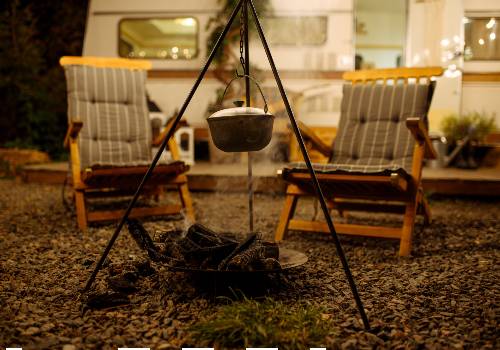
Cooking can lead to grease fires, or placing a flammable towel too close to the stove burners can quickly cause a fire. Never use water to douse the flames because it often splatters hot grease and can spread the fire.
Motorhome Engine Leaks
Motorhome engine fuel and fluid lines can leak and start a fire. Diesel engines are especially prone to this issue.
Whenever a damaged high-pressure fuel line leaks, the fuel will shoot out as a vapor. Once the vapor comes in contact with a hot exhaust system, a fire starts and often goes undetected for minutes before the driver is aware and pulls over.
RV Wheel or Tire Issues
When wheel bearings dry up, they create friction that can cause a fire to start on the RV underbelly and work through the subfloor and into the camper interior.
A tire that blows out can also create enough friction to start a fire, or flying rubber can sever wiring or propane lines and spark flames.
Another cause of a friction fire is forgetting to release your parking brake before driving the RV. If you don’t use the brake often, the cable that controls the calipers on the tires may stick and rub on the wheel even when you release it.
RV Fire-Prevention Inspection Checklist
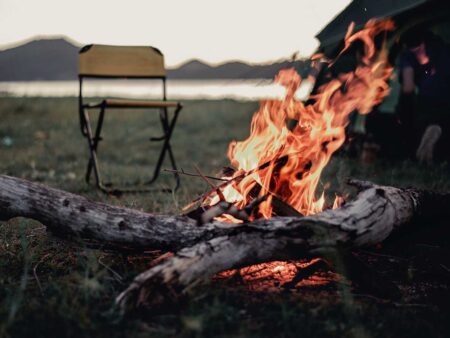
Now that you know the major causes of RV fires, let’s go over the ways to avoid problems by following this checklist:
1. Inspect RV Wiring Each Camping Season
Hiring a professional RV technician to inspect your camper’s wiring can catch issues before damage occurs. If you can’t afford to hire an inspector, get a flashlight and look carefully at your RV wires and outlets for problems.
Start inside and look for signs of burning, melting, or cracking on the surface of each outlet. Next, inspect the wall around each outlet for soot or scorch marks.
Follow all wiring you can see and look for missing, burned, sliced, or cracked outer coatings. Ensure any wire nuts are tightly attached and no wires are pinched or bent.
If possible, look behind and around your RV fridge, water heater, oven, stove, water pump, and furnace for plug or wire damage.
Want to Connect With a Community of Over 1,078 RV Enthusiasts?
Move to the RV exterior and check all the wires that run through storage compartments and the undercarriage in the same matter. Don’t forget to inspect the engine wiring if you have a motorhome.
Again, it’s always best to have a trained RV technician or electrician do an inspection once a year to ensure your wiring is in top condition.
SAFETY TIP: If you’re actively camping and smell a faint burning of plastic, it could be wires or appliance plugs starting to overheat and melt. Immediately turn off the electricity to your RV and find the source of the smell. If the scent worsens, you feel heat or see smoke, exit the RV immediately.
2. Routinely Inspect Propane Appliances
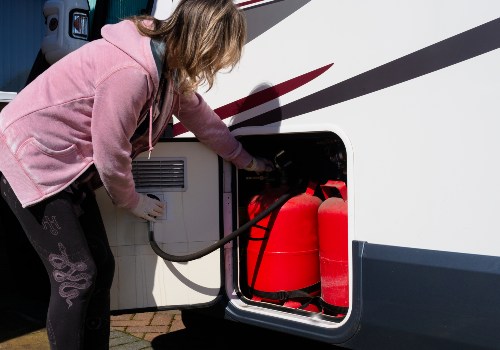
To prevent an RV fire from propane, you’ll need to know and ensure all the fittings and pipes running to the fridge, furnace, oven, stove, and water heater are free of leaks for safety reasons.
Propane has a distinctive smell, which can help you determine if there is a leak in the lines. Another possible problem is if a pilot light goes out or a stove or oven burner isn’t shut completely off.
If you mix dish soap and a bit of water, you can brush this over propane lines and fittings. Any place where propane is leaking will form bubbles, so you know where you need to fix the pipe.
To look for leaks, you can also use a propane and natural gas detection device, like the Klein Tools ET120 Gas Leak Detector. Once you spot a leak, turn off the main propane valve and any in-line valves to each appliance and keep the RV well-ventilated until you fix the issue.
If you see that a pilot light is out on a propane appliance, always air out the RV entirely before lighting the burner. If you don’t, you may ignite the propane gas that has gathered inside the camper when you light a match.
If you smell propane inside your RV and can’t determine where it’s coming from, keep all windows and doors open and call an RV repair tech or propane specialist to fix the issue.
SAFETY TIP: A carbon monoxide detector can’t detect propane gas leaks, so don’t rely on them to alert you to danger. Instead, buy a specialized sensor that will alert for CO2 plus other combustible gasses like methane and propane.
Do These 8 Things For Your RV Propane System (Video)
3. Prep RV Kitchen For Fire Safety
There is always less chance of a fire in your RV if you avoid using the propane gas stove or oven for cooking and use the microwave, a crock pot, an electric skillet, or an outdoor grill instead.
Before using your RV kitchen, ensure you clean all the surfaces regularly to remove grease buildup that can catch fire.
When using gas appliances for meal preparation, always have a cover ready to place over pot or pan contents that flame up. The lid will shut off the oxygen supply a fire needs to keep burning. Also, keep an easy-to-reach fire blanket and a fire extinguisher in the kitchen to contain any fire that breaks out immediately.
4. Clean and Inspect Motorhome Engine Yearly
Take your motorhome to an RV mechanic once a year, let them inspect all your engine components, and give it a good cleaning to remove all the dust and road grime that accumulates from miles of travel.
Many motorhome owners invest in an engine fire suppression system that will activate a fire retardant when it senses extreme temperatures.
We highly recommend the self-contained THIA Engine Fire Suppression System by PROTENG, which automatically deploys chemicals when it detects dangerous heat levels. The system doesn’t require batteries or power, and professional installation will give you peace of mind against engine fires. You can also get THIA tubes installed in other areas of your RV prone to fires.
How to Inspect an RV or Motorhome (Video)
5. Maintain Tires, Wheels, and Axles
Always ensure you are riding on high-quality tires under five years old and are inflated to the proper PSI.
Ensure you lubricate wheel bearings according to the manufacturer’s direction to eliminate heat buildup from friction when traveling down the road.
Have a mechanic inspect the axles, brakes, and all other tire or suspension components for rust, corrosion, cracks, or weakness and repair or replace anything defective.
RV Fire Safety Wrap-Up
Being proactive when it comes to RV fire safety will make every camping trip safer and help you avoid injury to guests and expensive damage to your recreational vehicle from smoke or fire.
By having a fire-exit plan, the correct fire suppression and escape supplies, and a fire-hazard inspection schedule, you’ll have everything you need to handle RV fire situations and be on your way to years of memorable and safe camping trips!
"Man cannot discover new oceans unless he has the courage to lose sight of the shore."
-- Andre Gide

